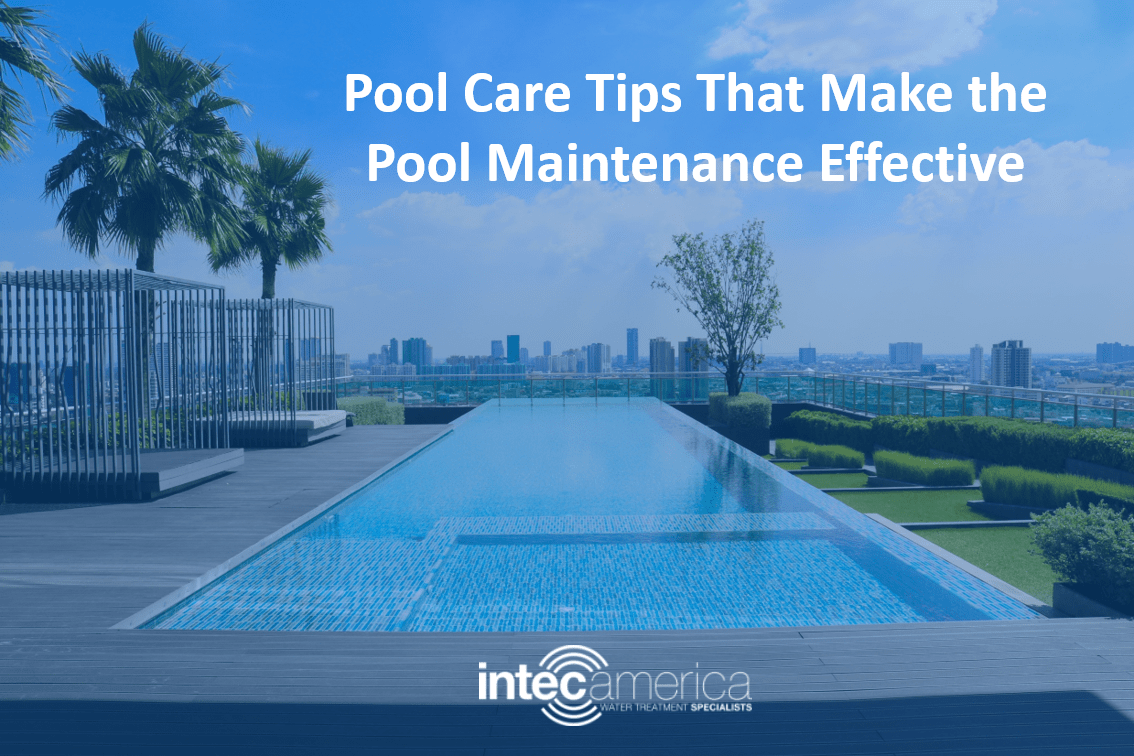Owning a pool is a luxury. However, it requires lots of effort to maintain it prim and clean. It takes vacuuming, cleaning tiles, water filtration, sanitation and chemistry balancing, and much more to maintain a pool. If not properly maintained, the pool might become a breeding ground for germs, bacteria, and the health concerns that come along with it. To avoid these concerns, it is essential to adhere to maintenance schedules for proper care. Well, do you know how to properly maintain and care for a swimming pool? This post offers a few tips to make your pool care and maintenance highly effective.

Tips to Enhance Your Pool Care
The main reason for pool care is to enhance the swimming experience. Although the pool water may look clean and sparkling at times, this may not always be the case. Unhealthy or unsightly water may be due to chemical, foul odor, bad water taste, etc. How to care for the pool such that it remains clean and healthy for all? The following pointers offer insights on healthy and nature-friendly pool care.
- Invest in Chlorine-free Pool Sanitation Systems:
Chlorine has been widely used for pool sanitation for several years now. However, its popularity has fallen in recent years due to the ongoing studies on the effects of chlorine on human health. Over the years, many chlorine-free sanitation processes have gained priority. Although they claim to be 100% chlorine-free, this may not always be the case. Copper ionization is one of the more popular and most effective chlorine-free sanitation processes. This process utilizes copper ionizers for eliminating living contaminants from water. Typically, these copper ionizers are installed in the recirculation lines where they release copper ions. Ionic copper has been proven to percolate through the RNA structure of algae cells, thereby inhibiting its growth. So, by using these ionizers, you can stay assured of enjoying a chlorine-free or chemical-free pool.
- Clean Pool Filter Periodically:
Recirculating the water through a filter for a minimum of 8 hours per day reduces the potential for vacuuming. Keep in mind, recirculated water through a filter removes suspended matter that causes cloudy water. Recirculation also reduces the chance of suspended material falling to the bottom of our pool. Keep in mind, increases circulation though your filtration system increases the need to backwash or clean the filters as the filter will become loaded with contaminants and clog the filters. Cleaning or backwashing tines are related to the pressure drop in a given period of time which are generally 7-10 psi.
- Clean Pool Tiles:
Pool tiles can be often cleaned with common household items such as bleach, baking soda, or an acid. It truly depends if the stain/discoloration is organic or inorganic. Keep in mind, many cleaners can effect the pH of the water and it may require balancing once the cleaning is completed. You can test a product on a small area to make sure the correct product is chosen. Acid work best for mineral and metal inorganic stains. Bleach and baking soda work best for organic stains caused from alge, mildew, or other decaying vegetation.
- Remove Oil from Water:
Makeup, hair products, lotions, etc can make the pool water oily. The molecules of oil float to the surface of the water and will settle on the pool tiles, thereby making it slimy. This oil slick can be treated with some simple techniques like adding some tennis balls, foam, or a sponge in the skimmer to soak up the oil. At times, enzyme products can be used to break the oil down. As you know, there are many types of oil and some type may require professional assistance.
- Periodic Aeration of Pool Water:
Aerated water can help keep water clear if proper filtration is in place. Water features such as waterfalls, deck jets, or fountains do add gasses into the water. This same process often used in water treatment to assist removing minerals and metals from the water such as iron and manganese. If poor filtration is in place, the water will become cloudy from oxidized contaminants. Shocking a pool and ozone injections or air injections, are other examples used to oxidize contaminants but at a faster rate.
Adopting the above-mentioned tips in your pool care schedule is helpful, only if it is done with the right equipment. You must invest in high-quality equipment from reliable suppliers like Intec-America. The company offers high-quality copper ionizers and chlorine-free solutions for water purification and sanitization.
Recent Blog Posts
- What is the Best Chlorine-free Treatment for Your Swimming Pool?
- 5 Benefits of Using Reverse Osmosis Systems for Water Filtration
- Ozone Water Treatment – Benefits and Uses Explained
- Pool Chlorine Shortage in 2021 and Effective Chlorine-free Pool Alternatives
- Pool Care Tips That Make the Pool Maintenance Effective
- Guide to Water Softener Issues, Maintenance Tips, and Replacement
- Hot Tub Chlorine Alternatives: What is Right for You
- Point-of-Use Vs. Point-of-Entry Water Treatment Systems: Features and Comparison
- Water Softener Vs Reverse Osmosis: What is Right Your Application?
- How Often Should You Clean a Swimming Pool?
- Opening your Pool
- How to Prepare Your Swimming Pool for Summer?
- How Often Should You Test Your Pool Water?
- 9 Healthier Alternatives to Chlorine for Swimming Pools
- How to Prepare Your Pool for a Best At-Home Staycation?


